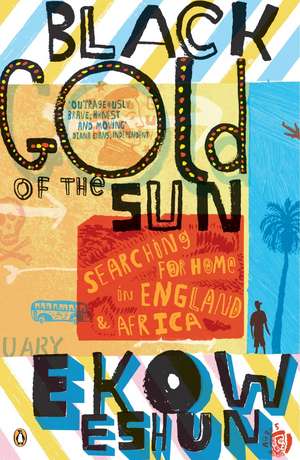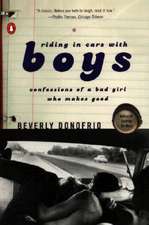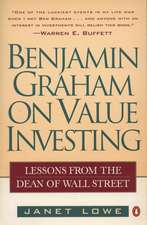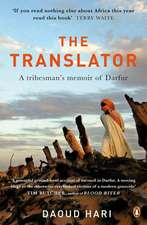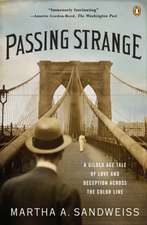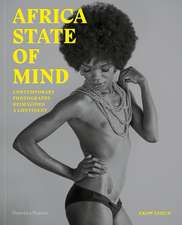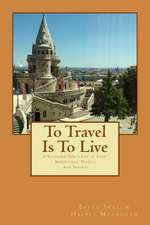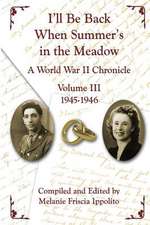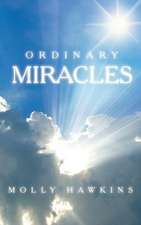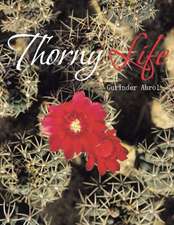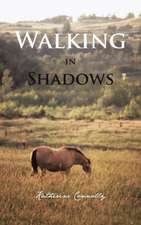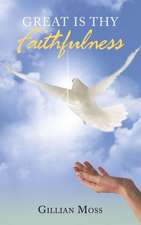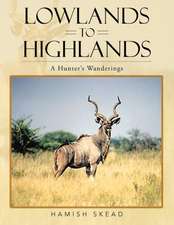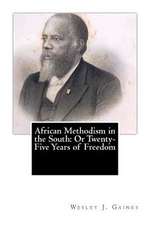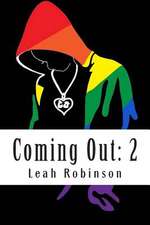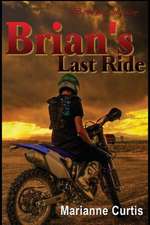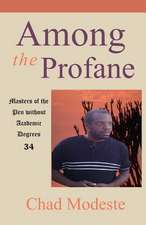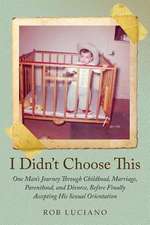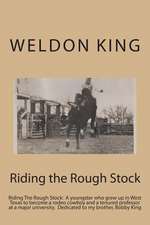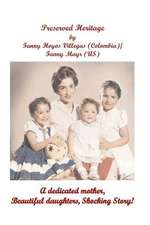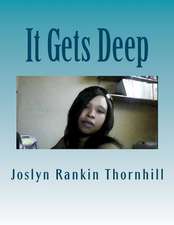Black Gold of the Sun: Searching for Home in England and Africa
Autor Ekow Eshunen Limba Engleză Paperback – 28 iun 2006
| Toate formatele și edițiile | Preț | Express |
|---|---|---|
| Paperback (2) | 99.29 lei 6-8 săpt. | |
| Vintage Books USA – 30 iun 2007 | 102.40 lei 3-5 săpt. | |
| Penguin Books – 28 iun 2006 | 99.29 lei 6-8 săpt. |
Preț: 99.29 lei
Nou
Puncte Express: 149
Preț estimativ în valută:
18.100€ • 19.84$ • 15.69£
18.100€ • 19.84$ • 15.69£
Carte tipărită la comandă
Livrare economică 16-30 aprilie
Preluare comenzi: 021 569.72.76
Specificații
ISBN-13: 9780141010960
ISBN-10: 0141010967
Pagini: 240
Dimensiuni: 1 x 1 x 1 mm
Greutate: 0.15 kg
Editura: Penguin Books
Colecția Penguin
Locul publicării:London, United Kingdom
ISBN-10: 0141010967
Pagini: 240
Dimensiuni: 1 x 1 x 1 mm
Greutate: 0.15 kg
Editura: Penguin Books
Colecția Penguin
Locul publicării:London, United Kingdom
Notă biografică
Ekow Eshun is a former editor of the British men's magazine Arena and is now artistic director of the Institute of Contemporary Arts in London, where he lives. This is his first book.
Extras
I
'Where are you from?' he said. 'No, where are you really
from?'
It was the businessman who wanted to know. He'd been
slumped beside me with his eyes shut and his mouth open
since we'd left London. As the Boeing 777 dipped towards
Accra he heaved himself up straight.
'Where are you from?' he repeated.
The overhead light glistened off the darkness of his skin.
He wiped the film of sweat from his forehead.
I gave him the usual line.
'My parents are from Ghana, but I was born in Britain.'
In all the times I'd been asked the same question it was
still the best answer I'd come up with. It wasn't a lie. It
just wasn't the whole truth.
'Then you are coming home, my brother,' he said,
leaning across me to empty a miniature of Teacher's Scotch
into the plastic glasses on our foldaway tables.
'Akwaba,' he said, raising his glass. 'Welcome home.'
As we drained the whisky I thought of all the other ways
I could have answered his question.
Where are you from?
I don't know.
That's why I'm on this plane.
That's why I'm going to Ghana.
Because I have no home.
I'd caught the plane that afternoon: a British Airways
flight straight down the Greenwich Meridian line from
Heathrow to Kotoka airport in Accra.
We'd risen above the clouds and, seated over the wing
with the whine of the jet engines in my ears, I'd tried to
concentrate on an anodyne movie about a gang of con
artists breaking into the vault of a Vegas casino, before
giving up to watch the plane's shadow ripple against the
clouds below instead.
At Lagos, the flight made a stopover, and I caught my
first glimpse of Africa since childhood. The sun was low
and from out of the shadows ground crew in blue overalls
hastened across the tarmac. A staircase thunked against
the plane's flank. The doors sighed open. Tropical warmth
filled the cabin. A stewardess with brittle make-up sprayed
gusts of rose-scented insect repellent along the aisle.
'They treat us like animals,' grumbled the businessman.
A line of passengers in heavy cloth robes joined the
plane, haloed with sweat. I compared their faces to mine.
I looked as African as they did. But I didn't know how far
that affinity stretched. Did it reach beneath the skin or did
it end on the surface, in the slant of our eyes and the
fullness of our lips?
It was April 2002, and I was thirty-three years old.
I was flying to Ghana to find out what I was made of.
My name is Ekow Eshun. That's a story in itself.
Ekow means 'born on a Thursday'. The Ghanaian pronunciation
of it is Eh-kor and that would be fine if I'd grown
up there instead of London where, to the ears of friends,
Ehkor became Echo. Throughout my childhood I was
pestered by schoolyard wags who thought it hilarious to
call after me in descending volume: 'Echo, echo, echo.' It
was my first lesson in duality. Who you are is determined
by where you are.
My parents arrived in London from Ghana in 1963. They
never meant to stay. And even though they have spent
most of the past forty years in Britain, Ghana is still their
home. When I was a child growing up in London, its
sounds and smells pervaded our house. Ghana was there
in the hot pepper scent of palm nut soup tickling your
nostrils as you entered the house; the highlife songs rising
from the stereo; the sound of my mother shouting down
a capricious telephone line to her sister in Accra.
But Ghana was their home, not mine. I knew this from
experience.
I was born in 1968 in a red-brick terraced house in
Wembley, north London. I was the youngest of four children.
When I was two my parents moved the family to
Ghana. We lived in Accra for three years. In 1974, we
returned to London. I was five years old. I didn't plan to
go back.
My last sight of the place was a country in meltdown. A
military junta had taken power shortly before we left. I
remembered long speeches by generals on a black-andwhite
television. The hourly price rises for a bag of rice.
Strikes and shortages and demonstrations. What was there
to return to?
I asked myself the question I'd been turning over since
I first booked my flight: why make this trip?
During my late twenties I began to feel I couldn't live
in London any more. The bigotries of the city weighed
down on me. I saw condescension in the eyes of bank
clerks and malign intent in the store detectives watching
me from the end of an aisle. Lynch mobs chased me
through my dreams. I fantasized about taking a machine
gun to the streets.
From the extremity of my mood, I guessed that something
more fundamental was at work than disaffection
with the city. I knew my state of mind wasn't good.
My fantasies were getting more violent. I needed to heal
myself. I started to think about a childhood spent in
London, then Ghana, then London again. Had I lost a part
of myself in that toing and froing? Maybe by returning to
Ghana I could become whole again.
Even though my roots were in Britain it was a white
country, and I'd felt like an outsider there all my life. In
Ghana I'd be another face in the crowd. Anonymity meant
the freedom to be myself, not the product of someone
else's prejudice. I bought a map of the country and studied
its cities and rivers. I plotted a trip from the Atlantic
coastline in the south to the dry north. I wanted to discover
the whole country. I wanted to call it home.
I gave myself five weeks. I'd spend the first two exploring
Accra, the capital. After that I'd travel west along the
shoreline to Elmina, the town where Europeans first settled
on African land in 1482. Then I could visit the neighbouring
town of Cape Coast, Ghana's former capital, where my
parents both grew up. That would take another week. In
the remaining fortnight, I'd start heading north. I'd go to
Kumasi, capital of the old Asante empire, in Ghana's central
region. Then I'd keep going all the way through the arid
northern plains until I reached the border with Burkina
Faso.
By the time I was ready to go it was 2002 - twenty-eight
years since I'd left the country as a child. I was looking for
an antidote to London. I wasn't sure if that was too much
to ask. All I knew was that if Ghana didn't live up to my
hopes I'd have nothing left to hold on to. Then I really
would be lost.
From Lagos the Boeing skirted the African coast.
I peered at the Atlantic, 35,000 feet below. This ocean
had once been scattered with tall ships. Sails taut they had
fought their way to Africa from Venice, Portugal and other
states of Europe. Against the force of the northern trade
winds masts had snapped. Boats had sunk. Men brave and
timid had died. When they eventually succeeded in the
fifteenth century it was no less an accomplishment than
crossing the Sahara or traversing the Arctic. On 19 January
1482, a Portuguese fleet carrying 600 soldiers, masons and
carpenters, holds filled with numbered blocks of granite,
weighed anchor on the Ghanaian shoreline. At the town
of Elmina they built Sa€o Jorge castle, the first permanent
European settlement in Africa.
All along the west coast of Africa, Europe discovered
riches. They named the land as they went - the Grain
Coast, the Ivory Coast, the Gold Coast - and sailed home
borne down with tusks and precious metals and the human
cargo sometimes known as 'black gold'.
Yet the African connection to the western world was
never simply passive. Among the Portuguese crew that
landed at Elmina was the ordinary seaman Cristoforo
Colombo, for instance, who led Europe's discovery of the
Americas ten years later accompanied by his African pilot,
Pedro Nino.
The plane banked towards Kotoka airport and Accra
hove into view, lambent in the falling light. Through the
window I imagined the paths of the sailing ships preserved
in the sea, forming a lattice of wake lines joining Africa,
Europe, America and the Caribbean. It was impossible to
tell where the connections began or ended. The shape of
the continents themselves seemed to blur, as a result of
centuries of commerce and migration, both voluntary and
forced.
Kotoka control tower rose into view. Wheel hatches
creaked open. The past is not history, I thought, as the
plane screamed on to the runway. It beats against the
present like the tide.
It was the smell that I first noticed - like rare orchids or
rotten fruit.
Car horns blared in the distance. The lights of the terminal
glowed across the tarmac. From the doorway of the
aeroplane I followed the other passengers down the steps
into a steam-room heat. I ploughed through customs,
immigration and the scrum of porters wrestling me for my
luggage, until I stood with my back to the airport, facing
Ghana.
And Ghana stared back.
Behind a wire perimeter fence, wives and fathers and
children playing hide-and-seek between the legs of their
parents waited to greet the plane. There were smiles and
waves as they spotted loved ones. None of them was there
for me, but for a moment a wave of happiness engulfed
me as I watched the crowd. Ghana wasn't home, but
perhaps it would be possible for me to feel at home there.
Dragging my suitcase to the first car in a row of blackand-
yellow taxis, I collapsed into the back seat. The cab
shunted into traffic. Accra coalesced around me. The neon
image of a grass-skirted dancer hovered above the roof of
the hotel Shangri-La. Children materialized at traffic lights
selling cigarettes and cellophane bags of iced water. Street
hoardings advertised the virtues of Guinness Foreign Extra
Stout and Richoco chocolate milk. Trucks rumbled by
bearing ecclesiastical slogans above their windscreens such
as 'Forward with God' and 'Shine, Jesus, Shine'. I smelled
diesel fumes and sewage and, as the cab paused at a
junction, the aroma of plantain and peanuts roasting on a
brazier, the memory of which I'd savoured since my last
taste twenty-eight years earlier.
From London, I'd arranged to borrow a house in a suburban
neighbourhood called Upper Heights. It belonged
to my mother's cousin who lived in Nottingham and
spent only holidays there. Apart from Mrs Hagan, the
housekeeper, I would be alone.
Upper Heights was a modern development of trim white
houses built on a hill overlooking the city. Mrs Hagan,
elderly, maternal, solicitious, had laid out a dinner of boiled
yam and fish stew, with sliced mango and small hand-baked
sponge cakes to follow. But the journey had left me exhausted.
All I could do was stab at the food, then drag myself
upstairs, Mrs Hagan clucking after me like a mother hen
in case, as she seemed to think likely, I couldn't make it to
bed before collapsing. Tired as I was, I couldn't sleep.
Accra flickered before my eyelids in a sequence of dazzling
impressions, as if I were gazing up at it on a screen from
the front row of the cinema.
Nothing matches your first sight of a new city. You
approach it with trepidation and its streets embrace you.
The scent of bitumen and hot street food tantalizes your
senses. Vendors and car horns and radios blare an unfamiliar
rhythm. Your heart beats a noisy reply. That first
night I gave up on sleep altogether. I sat on the balcony
outside my bedroom looking at the mystery of the buildings
glimmering in the distance. By contrast to London's
pallor, Accra seemed to sparkle.
If I knew then as much as I do now, it's possible Ghana
might still have appeared to shine. But first impressions
are exactly that. There is an order of fact beneath them
that is inescapable. After the sparkle fades you have to deal
with what's left - whether you like what you see or not.
II
Saturday night on Oxford Street. Bright-eyed girls clung to
the arms of broad-shouldered young men. Thrilled by the
promise of the hours ahead, their eagerness lit the dark.
Couples hailed each other across the street, coalescing into
groups that promenaded arm in arm along the pavement
like a Broadway chorus line.
It was my cousin Kobby who suggested meeting on
Oxford Street. I'd spent four days exploring Accra's markets
and museums. Now I wanted to see it after dark.
'I know the perfect place,' said Kobby over the phone
that afternoon. 'It's the most fashionable street in Accra.'
But as I strolled along the pavement past the brightly lit
bars and the gilded couples, my mind turned to what I'd
read about the fashions of eighteenth-century Accra. How
men of that era liked to tie little gold ingots into their
beards and shave designs for ships or castles into their hair.
And the care with which a woman would prepare herself
each day: rubbing her body with perfumed oil, then mixing
a fine white clay with water for make-up, which she'd press
on to her face and bust with wood blocks shaped like
circles or scimitars. As jewellery, she'd have worn bead
necklaces made from coloured glass and gold bracelets
hung with European coins such as the French louis d'or,
gold rings and an anklet in silver, weighing a pound, on
each foot.
She'd have worn a skirt of imported silk, secured with a
belt decorated with keys and coins so that she jangled as she
walked. Attached to her hair might have been a small gold
bell or the red tail feathers of a grey parrot. In her house she
would have kept a pet civet, and once a week she would use
a small spoon to tap the secretions of its anal gland, which
she would mix with water and dab on her neck as perfume.
During the same period, the secretions of the civet, a
catlike mammal, were also being used by perfumers in
France and England. History is full of unobserved parallels.
It was like that with Kobby and me. He'd come to
London for the first time five years ago in 1997.
'This is your cousin,' said my mother. We'd shaken
hands warily. Given he was a dozen years younger than
me and had grown up a continent away, I wondered what
we'd have in common. But Kobby turned out to be as
hungry for music and movies as any child of the west. At
seventeen, he was devoted to Tupac Shakur and WWF.
I introduced him to Biggie Smalls and to Christopher
Walken in King of New York. In return he offered stories
about the trolls that were said to lurk in Ghana's woods
and the spirits living in the lakes.
'Where are you from?' he said. 'No, where are you really
from?'
It was the businessman who wanted to know. He'd been
slumped beside me with his eyes shut and his mouth open
since we'd left London. As the Boeing 777 dipped towards
Accra he heaved himself up straight.
'Where are you from?' he repeated.
The overhead light glistened off the darkness of his skin.
He wiped the film of sweat from his forehead.
I gave him the usual line.
'My parents are from Ghana, but I was born in Britain.'
In all the times I'd been asked the same question it was
still the best answer I'd come up with. It wasn't a lie. It
just wasn't the whole truth.
'Then you are coming home, my brother,' he said,
leaning across me to empty a miniature of Teacher's Scotch
into the plastic glasses on our foldaway tables.
'Akwaba,' he said, raising his glass. 'Welcome home.'
As we drained the whisky I thought of all the other ways
I could have answered his question.
Where are you from?
I don't know.
That's why I'm on this plane.
That's why I'm going to Ghana.
Because I have no home.
I'd caught the plane that afternoon: a British Airways
flight straight down the Greenwich Meridian line from
Heathrow to Kotoka airport in Accra.
We'd risen above the clouds and, seated over the wing
with the whine of the jet engines in my ears, I'd tried to
concentrate on an anodyne movie about a gang of con
artists breaking into the vault of a Vegas casino, before
giving up to watch the plane's shadow ripple against the
clouds below instead.
At Lagos, the flight made a stopover, and I caught my
first glimpse of Africa since childhood. The sun was low
and from out of the shadows ground crew in blue overalls
hastened across the tarmac. A staircase thunked against
the plane's flank. The doors sighed open. Tropical warmth
filled the cabin. A stewardess with brittle make-up sprayed
gusts of rose-scented insect repellent along the aisle.
'They treat us like animals,' grumbled the businessman.
A line of passengers in heavy cloth robes joined the
plane, haloed with sweat. I compared their faces to mine.
I looked as African as they did. But I didn't know how far
that affinity stretched. Did it reach beneath the skin or did
it end on the surface, in the slant of our eyes and the
fullness of our lips?
It was April 2002, and I was thirty-three years old.
I was flying to Ghana to find out what I was made of.
My name is Ekow Eshun. That's a story in itself.
Ekow means 'born on a Thursday'. The Ghanaian pronunciation
of it is Eh-kor and that would be fine if I'd grown
up there instead of London where, to the ears of friends,
Ehkor became Echo. Throughout my childhood I was
pestered by schoolyard wags who thought it hilarious to
call after me in descending volume: 'Echo, echo, echo.' It
was my first lesson in duality. Who you are is determined
by where you are.
My parents arrived in London from Ghana in 1963. They
never meant to stay. And even though they have spent
most of the past forty years in Britain, Ghana is still their
home. When I was a child growing up in London, its
sounds and smells pervaded our house. Ghana was there
in the hot pepper scent of palm nut soup tickling your
nostrils as you entered the house; the highlife songs rising
from the stereo; the sound of my mother shouting down
a capricious telephone line to her sister in Accra.
But Ghana was their home, not mine. I knew this from
experience.
I was born in 1968 in a red-brick terraced house in
Wembley, north London. I was the youngest of four children.
When I was two my parents moved the family to
Ghana. We lived in Accra for three years. In 1974, we
returned to London. I was five years old. I didn't plan to
go back.
My last sight of the place was a country in meltdown. A
military junta had taken power shortly before we left. I
remembered long speeches by generals on a black-andwhite
television. The hourly price rises for a bag of rice.
Strikes and shortages and demonstrations. What was there
to return to?
I asked myself the question I'd been turning over since
I first booked my flight: why make this trip?
During my late twenties I began to feel I couldn't live
in London any more. The bigotries of the city weighed
down on me. I saw condescension in the eyes of bank
clerks and malign intent in the store detectives watching
me from the end of an aisle. Lynch mobs chased me
through my dreams. I fantasized about taking a machine
gun to the streets.
From the extremity of my mood, I guessed that something
more fundamental was at work than disaffection
with the city. I knew my state of mind wasn't good.
My fantasies were getting more violent. I needed to heal
myself. I started to think about a childhood spent in
London, then Ghana, then London again. Had I lost a part
of myself in that toing and froing? Maybe by returning to
Ghana I could become whole again.
Even though my roots were in Britain it was a white
country, and I'd felt like an outsider there all my life. In
Ghana I'd be another face in the crowd. Anonymity meant
the freedom to be myself, not the product of someone
else's prejudice. I bought a map of the country and studied
its cities and rivers. I plotted a trip from the Atlantic
coastline in the south to the dry north. I wanted to discover
the whole country. I wanted to call it home.
I gave myself five weeks. I'd spend the first two exploring
Accra, the capital. After that I'd travel west along the
shoreline to Elmina, the town where Europeans first settled
on African land in 1482. Then I could visit the neighbouring
town of Cape Coast, Ghana's former capital, where my
parents both grew up. That would take another week. In
the remaining fortnight, I'd start heading north. I'd go to
Kumasi, capital of the old Asante empire, in Ghana's central
region. Then I'd keep going all the way through the arid
northern plains until I reached the border with Burkina
Faso.
By the time I was ready to go it was 2002 - twenty-eight
years since I'd left the country as a child. I was looking for
an antidote to London. I wasn't sure if that was too much
to ask. All I knew was that if Ghana didn't live up to my
hopes I'd have nothing left to hold on to. Then I really
would be lost.
From Lagos the Boeing skirted the African coast.
I peered at the Atlantic, 35,000 feet below. This ocean
had once been scattered with tall ships. Sails taut they had
fought their way to Africa from Venice, Portugal and other
states of Europe. Against the force of the northern trade
winds masts had snapped. Boats had sunk. Men brave and
timid had died. When they eventually succeeded in the
fifteenth century it was no less an accomplishment than
crossing the Sahara or traversing the Arctic. On 19 January
1482, a Portuguese fleet carrying 600 soldiers, masons and
carpenters, holds filled with numbered blocks of granite,
weighed anchor on the Ghanaian shoreline. At the town
of Elmina they built Sa€o Jorge castle, the first permanent
European settlement in Africa.
All along the west coast of Africa, Europe discovered
riches. They named the land as they went - the Grain
Coast, the Ivory Coast, the Gold Coast - and sailed home
borne down with tusks and precious metals and the human
cargo sometimes known as 'black gold'.
Yet the African connection to the western world was
never simply passive. Among the Portuguese crew that
landed at Elmina was the ordinary seaman Cristoforo
Colombo, for instance, who led Europe's discovery of the
Americas ten years later accompanied by his African pilot,
Pedro Nino.
The plane banked towards Kotoka airport and Accra
hove into view, lambent in the falling light. Through the
window I imagined the paths of the sailing ships preserved
in the sea, forming a lattice of wake lines joining Africa,
Europe, America and the Caribbean. It was impossible to
tell where the connections began or ended. The shape of
the continents themselves seemed to blur, as a result of
centuries of commerce and migration, both voluntary and
forced.
Kotoka control tower rose into view. Wheel hatches
creaked open. The past is not history, I thought, as the
plane screamed on to the runway. It beats against the
present like the tide.
It was the smell that I first noticed - like rare orchids or
rotten fruit.
Car horns blared in the distance. The lights of the terminal
glowed across the tarmac. From the doorway of the
aeroplane I followed the other passengers down the steps
into a steam-room heat. I ploughed through customs,
immigration and the scrum of porters wrestling me for my
luggage, until I stood with my back to the airport, facing
Ghana.
And Ghana stared back.
Behind a wire perimeter fence, wives and fathers and
children playing hide-and-seek between the legs of their
parents waited to greet the plane. There were smiles and
waves as they spotted loved ones. None of them was there
for me, but for a moment a wave of happiness engulfed
me as I watched the crowd. Ghana wasn't home, but
perhaps it would be possible for me to feel at home there.
Dragging my suitcase to the first car in a row of blackand-
yellow taxis, I collapsed into the back seat. The cab
shunted into traffic. Accra coalesced around me. The neon
image of a grass-skirted dancer hovered above the roof of
the hotel Shangri-La. Children materialized at traffic lights
selling cigarettes and cellophane bags of iced water. Street
hoardings advertised the virtues of Guinness Foreign Extra
Stout and Richoco chocolate milk. Trucks rumbled by
bearing ecclesiastical slogans above their windscreens such
as 'Forward with God' and 'Shine, Jesus, Shine'. I smelled
diesel fumes and sewage and, as the cab paused at a
junction, the aroma of plantain and peanuts roasting on a
brazier, the memory of which I'd savoured since my last
taste twenty-eight years earlier.
From London, I'd arranged to borrow a house in a suburban
neighbourhood called Upper Heights. It belonged
to my mother's cousin who lived in Nottingham and
spent only holidays there. Apart from Mrs Hagan, the
housekeeper, I would be alone.
Upper Heights was a modern development of trim white
houses built on a hill overlooking the city. Mrs Hagan,
elderly, maternal, solicitious, had laid out a dinner of boiled
yam and fish stew, with sliced mango and small hand-baked
sponge cakes to follow. But the journey had left me exhausted.
All I could do was stab at the food, then drag myself
upstairs, Mrs Hagan clucking after me like a mother hen
in case, as she seemed to think likely, I couldn't make it to
bed before collapsing. Tired as I was, I couldn't sleep.
Accra flickered before my eyelids in a sequence of dazzling
impressions, as if I were gazing up at it on a screen from
the front row of the cinema.
Nothing matches your first sight of a new city. You
approach it with trepidation and its streets embrace you.
The scent of bitumen and hot street food tantalizes your
senses. Vendors and car horns and radios blare an unfamiliar
rhythm. Your heart beats a noisy reply. That first
night I gave up on sleep altogether. I sat on the balcony
outside my bedroom looking at the mystery of the buildings
glimmering in the distance. By contrast to London's
pallor, Accra seemed to sparkle.
If I knew then as much as I do now, it's possible Ghana
might still have appeared to shine. But first impressions
are exactly that. There is an order of fact beneath them
that is inescapable. After the sparkle fades you have to deal
with what's left - whether you like what you see or not.
II
Saturday night on Oxford Street. Bright-eyed girls clung to
the arms of broad-shouldered young men. Thrilled by the
promise of the hours ahead, their eagerness lit the dark.
Couples hailed each other across the street, coalescing into
groups that promenaded arm in arm along the pavement
like a Broadway chorus line.
It was my cousin Kobby who suggested meeting on
Oxford Street. I'd spent four days exploring Accra's markets
and museums. Now I wanted to see it after dark.
'I know the perfect place,' said Kobby over the phone
that afternoon. 'It's the most fashionable street in Accra.'
But as I strolled along the pavement past the brightly lit
bars and the gilded couples, my mind turned to what I'd
read about the fashions of eighteenth-century Accra. How
men of that era liked to tie little gold ingots into their
beards and shave designs for ships or castles into their hair.
And the care with which a woman would prepare herself
each day: rubbing her body with perfumed oil, then mixing
a fine white clay with water for make-up, which she'd press
on to her face and bust with wood blocks shaped like
circles or scimitars. As jewellery, she'd have worn bead
necklaces made from coloured glass and gold bracelets
hung with European coins such as the French louis d'or,
gold rings and an anklet in silver, weighing a pound, on
each foot.
She'd have worn a skirt of imported silk, secured with a
belt decorated with keys and coins so that she jangled as she
walked. Attached to her hair might have been a small gold
bell or the red tail feathers of a grey parrot. In her house she
would have kept a pet civet, and once a week she would use
a small spoon to tap the secretions of its anal gland, which
she would mix with water and dab on her neck as perfume.
During the same period, the secretions of the civet, a
catlike mammal, were also being used by perfumers in
France and England. History is full of unobserved parallels.
It was like that with Kobby and me. He'd come to
London for the first time five years ago in 1997.
'This is your cousin,' said my mother. We'd shaken
hands warily. Given he was a dozen years younger than
me and had grown up a continent away, I wondered what
we'd have in common. But Kobby turned out to be as
hungry for music and movies as any child of the west. At
seventeen, he was devoted to Tupac Shakur and WWF.
I introduced him to Biggie Smalls and to Christopher
Walken in King of New York. In return he offered stories
about the trolls that were said to lurk in Ghana's woods
and the spirits living in the lakes.
Recenzii
“A life-affirming memoir about belonging, identity, and hope.” —Ebony“An impressive debut. . .An unusual memoir in which the personal and the political are entwined with great skill.” —The Times (London)“Leavened with insight, self-awareness, and flashes of humor . . .Eshun is a skilled wordsmith.” —Christian Science Monitor “Refreshing. . .Eshun’s writing is fluid and self-assured. . .his wistfulness and wry sense of humor add to the book’s charm. . .an engaging and eye-opening account of one man’s journey toward self-discovery.” —Black Issues Book Review
